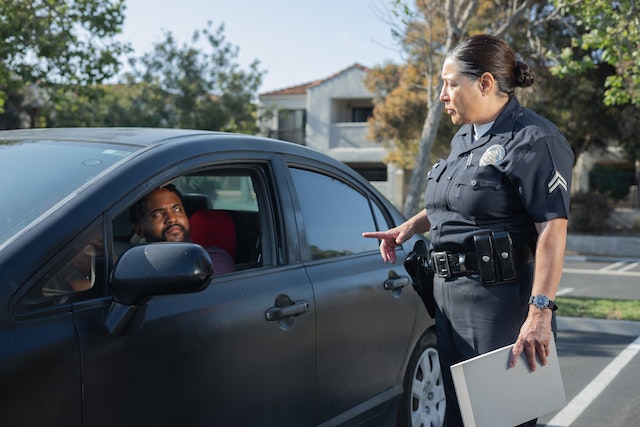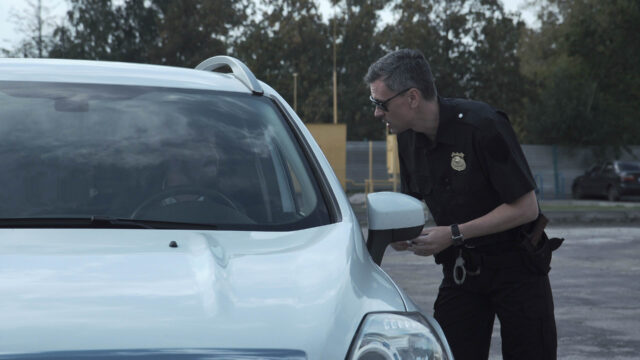Exploring the intricate web of legal precedent and state-specific statutes surrounding DWI checkpoints, this article unravels the complex thread of whether such law enforcement tactics are legal in the Lone Star State. Gain insightful knowledge on how Texas approaches the issue of DWI enforcement compared to national standards, the implications of your rights at checkpoints, and the possible consequences of non-compliance.
Whether you’re a concerned citizen, a law student, or simply curious, this article promises to guide you through the legally dense landscape regarding Texas DWI checkpoints. Prepare to dive into a comprehensive examination, as we dissect and analyze the most pressing questions, and provide clarity to this often convoluted topic.
What is the current legal status of DWI checkpoints in Texas?
Sobriety checkpoints, also known as DWI checkpoints, are locations where law enforcement officers are stationed to check drivers for signs of intoxication and impairment. If you’re a Texas driver or planning to travel through the state, you might wonder about the legality of these checkpoints.
Currently, in Texas, DWI checkpoints are illegal. This position stems from the interpretation of the Texas Constitution, which provides citizens with stronger privacy protections than the federal Constitution. The Fourth Amendment of the U.S. Constitution guards against unreasonable searches and seizures but does allow for exceptions, such as sobriety checkpoints under certain circumstances, as determined by the U.S. Supreme Court’s decision in Michigan Dept. of State Police v. Sitz. However, Texas interprets its state constitutional protections in such a way that DWI checkpoints have not been deemed constitutional within the state.
Here’s what you need to know:
- Legal Precedent: The federal precedent set by the Supreme Court allows for DWI checkpoints, but states are free to establish their laws and interpretations regarding their legality.
- Texas Interpretation: The Texas Court of Criminal Appeals has ruled that DWI checkpoints violate the Texas Constitution, leading to their current state of illegality.
- Law Enforcement Context: Despite the legal status, Texas law enforcement officials still engage in other methods to prevent drunk driving, such as “No Refusal” weekends where judges are available to quickly issue warrants for blood tests if a driver is suspected of DWI.
Understanding these points gives you a clear picture of the current legal landscape regarding DWI checkpoints in Texas and how it may affect you as a driver.
How does the Texas Transportation Code address sobriety checkpoints?
The Texas Transportation Code is silent on the specific mention of sobriety checkpoints; however, through this silence, it adheres to the broader legal interpretation within the state that deems these checkpoints unconstitutional. Despite not directly mentioning DWI checkpoints, the code does outline the powers and limitations of law enforcement officers when it comes to traffic stops and the enforcement of driving while intoxicated (DWI) laws.
The relevant points to consider about the Texas Transportation Code are:
- Traffic Stops: Law enforcement officers in Texas are authorized to stop vehicles if they have reasonable suspicion of a traffic violation or criminal activity, including suspicions of DWI.
- DWI Enforcement: The code specifies the legal blood alcohol concentration (BAC) limits and the penalties associated with exceeding these limits, but it does not legalize the use of checkpoints as a method to enforce these laws.
By understanding these subtleties, Texas drivers can better navigate the legal landscape regarding the enforcement of DWI laws and how it might impact their encounters with law enforcement.
What Supreme Court case affects the legality of DWI checkpoints in Texas?
The legality of DWI checkpoints in Texas is not directly impacted by a singular Supreme Court case, but rather by the interpretation of a combination of state and federal cases. However, the most relevant Supreme Court case is Michigan Dept. of State Police v. Sitz. Decided in 1990, this case had a significant nationwide impact on the use of sobriety checkpoints.
Here are the details about the case and how they interact with Texas law:
- Michigan Dept. of State Police v. Sitz: The U.S. Supreme Court ruled that sobriety checkpoints are constitutionally permissible under the Fourth Amendment, considering them to be reasonable searches.
- Minimal Intrusion: The court argued that the brief intrusion on a motorist’s Fourth Amendment rights is outweighed by the government’s interest in preventing drunk driving.
- State Discretion: Though the federal ruling allows checkpoints, Texas utilizes its constitutional authority to prohibit them based on the state’s interpretation of its citizens’ rights.
This context explains why, even after the Sitz case, Texas still does not permit the use of DWI checkpoints within the state.
Are there any alternatives to DWI checkpoints used in Texas?
Since DWI checkpoints are not legal in Texas, law enforcement agencies use several alternate strategies to deter and catch individuals driving under the influence:
- Targeted Patrols: Law enforcement may increase patrols in areas known for high instances of drinking and driving.
- No Refusal Programs: During certain periods, officers may quickly obtain warrants for blood tests if a driver suspected of DWI refuses a breathalyzer test.
- Public Awareness Campaigns: Authorities frequently promote the dangers of drunk driving through educational campaigns.
These methods are utilized to help reduce DWI incidents while remaining within the bounds of Texas law.
What are the penalties for a DWI in Texas?
Penalties for a DWI in Texas are severe and can include:
- Fines: Up to $2,000 for a first offense, and higher for subsequent offenses.
- Jail Time: From 3 days to 180 days for a first offense, with longer sentences, including the possibility of prison, for repeat offenders.
- License Suspension: 90 days to one year for a first offense.
The state takes DWI offenses seriously and penalties reflect this stance.
How do DWI checkpoint laws in Texas compare to those in other states?
Texas stands in contrast to the 38 states that currently allow DWI checkpoints, following legal precedence set by the U.S. Supreme Court. States that permit checkpoints typically have specific regulations governing their operation to ensure they are conducted fairly and legally.
Texas prioritizes individual protections from search and seizure more strongly, resulting in a ban on DWI checkpoints. This comparative assessment helps to illustrate the spectrum of enforcement strategies in place across different jurisdictions in the U.S.
What are your rights when approaching a DWI checkpoint in Texas?
Although DWI checkpoints are illegal in Texas, drivers should be aware of their rights during any traffic stops:
- Right to Remain Silent: You are not obligated to answer questions about where you’ve been or if you’ve been drinking.
- Right to Refuse Searches: Without probable cause or a warrant, you can refuse a vehicle search.
- Right to a Lawyer: If arrested, you have the right to an attorney.
Knowing these rights is crucial for any interaction with law enforcement.
How does probable cause factor into DWI stops in Texas?
Probable cause is necessary for any police stop intended to check for DWI. Officers must have a justifiable reason, such as erratic driving or a traffic violation, which leads them to suspect DWI. The nuances of what establishes probable cause in Texas provide drivers with a layer of protection against random or unjustified stops.
Understanding the role and requirements for probable cause in DWI-related stops is an essential aspect of navigating Texas traffic laws and protections.
Can you refuse a sobriety test in Texas and what are the consequences?
In Texas, you can legally refuse to take a sobriety test, whether it’s a field sobriety test or a breathalyzer. However, this refusal comes with severe consequences due to the state’s implied consent law, which stipulates that by driving on Texas roads, you’ve consented to a test if lawfully requested by an officer. Consequences of refusal can include automatic license suspension and can be used as evidence against you in court.
Drivers should weigh the potential implications of refusal against the possible outcomes of taking a sobriety test.
What should you do if you believe a DWI checkpoint in Texas is illegal?
If you encounter what you believe to be an illegal DWI checkpoint in Texas, you can take certain steps:
- Document the Experience: Note the location, time, and details of the checkpoint.
- Remain Polite: Always stay courteous and calm when interacting with officers.
- Seek Legal Advice: Consulting with a lawyer who specializes in DWI law can provide you with the appropriate course of action and representation, if necessary.
Such due diligence is recommended to uphold your rights and to navigate the situation lawfully and effectively.
In conclusion, while DWI checkpoints are not a part of Texas’s strategy to combat drunk driving, due to state interpretations of the constitution, Texas drivers need to understand the laws that are in play. From local enforcement tactics to individual rights, this article has covered the spectrum of areas related to the legality of checkpoints in the state. If you find yourself uncertain about any aspect of DWI laws or need legal assistance, do not hesitate to reach out to Spangler Law.



